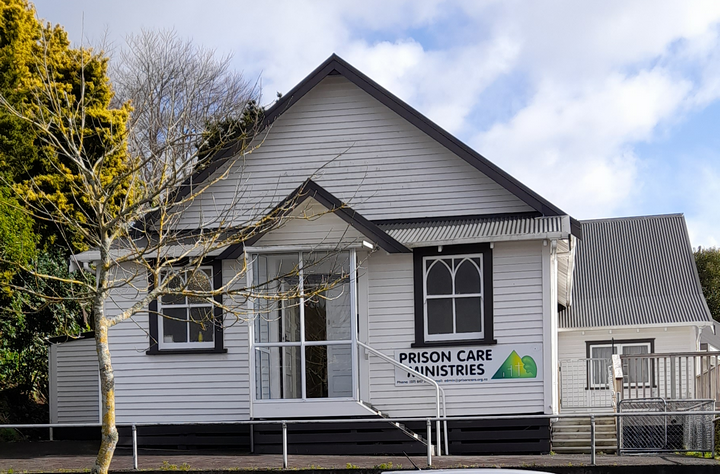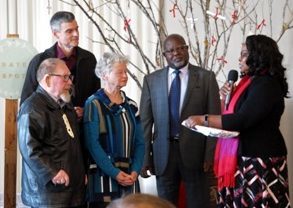A video featuring contributions from previous residents is available here
Pleasant surprise
One of our residents, S* had been with us for about a year, and it was time for him to become more independent. In addition to the barriers to finding accommodation referenced above he was of Pacific origin and not totally fluent in English. Around this time we made contact with a landlord who was willing to work with us in accommodating one of our men. We helped S* move into the unit and he took on most of the responsibilities as the tenant. He has continued to be faithful with his rent payments and has kept the unit in good condition. But we have also heard that he has gained a favourable reputation with the landlords of the other units in the block because of the way he has cared for the grounds of the whole site!
In it for the long haul
In 2019 we have had the joy and pleasure of seeing W*, who had been with us for over three years, move into his own two bedroom flat. He first made contact with us some six years earlier so we had been walking alongside him for some time and during that time we had seen a considerable change in his attitude. He became pleasant to work with and took on a positive outlook on life.
It came time for him to move into his own rental accommodation, but all our help and effort proved futile. He tried applying for Social Housing through the Ministry of Social Development and they placed him on the register but that is as far as it went. Later they referred him back to Work and Income whose only option was paying for the night shelter to accommodate him which would have been a backward step. So he therefore remained with us for what became a three year stay. Finally in March 2019 we helped him move into his own flat.
During his three year stay he made numerous job applications but no one gave him an opportunity even though he is highly skilled. Right near the end of his stay with us he volunteered some time with a partner agency, the Kaitiakitanga Charitable Trust on an environmental project. That contact led to a job offer from a business that eventually gave him full-time employment.
Manager, Sev Simwinga explaining about how difficult it can be for some men to remain out of prison
Several years ago a prisoner whose release was imminent approached me and said “Mister, what can I do to stay in ‘jail’ a little while longer?” I was a Corrections Officer at the time, and it was the first time I confronted this phenomenon. Flabbergasted and confused by what I thought was a nonsensical question I looked straight into his eyes and said “why would you want to stay in prison even a day longer… aren’t you looking forward to going home?” The response I got from him was most sobering. “I know I should be but, honestly, I am not” adding “I am afraid mister… I am afraid I will not cope with life on the outside” At loss for words I wondered what had gotten into him to justify this retrogressive thinking. Noticing my genuine ignorance of his reality, he graciously enlightened me.
“Mister” he said “in here I don’t have to budget, go to the supermarket or cook. In here I don’t worry about laundry or bills, what time I need to sleep and when to wake up, when to shower and when to eat…I am not equipped or ready to suddenly take on that level of responsibility”
The same narrative was replicated several years later when I had become a Probation Officer. A colleague received a call from a man on her caseload. The telephone conversation went along the lines of “thank you for being a good PO but I just can’t
do this…it’s too hard…. I am standing in front of a bank and I am just about to go in and stage a robbery – I won’t harm anyone I just want to go back to jail” I later accompanied my colleague to help dissuade him from jeopardising his freedom.
I share these stories to highlight how extremely susceptible some of the men are to the spell-binding grip of the revolving door of the Justice system. Changing that mindset puts the men on the course to reclaiming their ‘mana’ and community acceptance. However, the mindset change can be a painstakingly slow process and sometimes a life-long commitment. The environment which enables this to happen is one which



